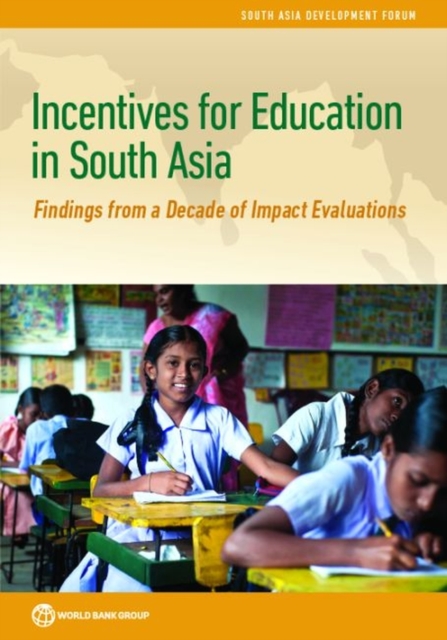CITESTE MAI MULT
Detalii
Descriere RO
The past decade has seen a dramatic increase in access to schooling across the South Asia region, with the coverage of primary education becoming almost universal and that of secondary education increasing steadily. But the quality of education remains a concern and the key challenge policy makers face today is making progress towards improving learning outcomes. The traditional way to address this challenge was to mobilize more budget resources, train teachers, improve curricula and distribute textbooks, among others. But input-based approaches have been questioned in recent years. Resources alone may not hold the answer if they are not put to good use. Frequent absenteeism by teachers suggests that their incentives are not aligned with those of policy makers. School principals lack the necessary autonomy to run their schools. Families may not fully grasp the importance education has for their children's future, or may lack the resources to send them to private schools. And communities may not be empowered to demand that local schools deliver as promised. Over the last decade, new approaches inspired by agency theories and behavioral sciences have built on these insights to experiment on the ground. The incentives faced by teachers, principals, families and communities have been tilted using bonuses, discretionary budget allocations, cash transfers, vouchers and local election rules, and the consequences have been assessed. Evaluations have focused on a range of outcomes, including daily attendance, education costs, school choice and learning outcomes. Nowhere has this drive towards rigorous impact evaluation been stronger than in South Asia. By now, dozens of experiments involving well-defined treatment and control groups allow to pause and take stock. This study summarizes the rich evidence accumulated by the region over the last decade, conducting a rigorous meta-analysis to identify possible design and publication biases, and relating the findings to the broader literature on education issues in South Asia. The conclusions generally give credence to the new approaches, but they also reveal the limits of the experiments tried so far.
EdituraWorld Bank Publications
Dimensiuni152 x 229
Data Publicarii30/09/2020
Format
Necartonata
Numar pagini184
Aceasta este o carte in limba engleza. Descrierea cartii (tradusa din engleza cu Google Translate) este in limba romana din motive legale.
In ultimul deceniu s-a inregistrat o crestere dramatica a accesului la scolarizare in toata regiunea Asiei de Sud, acoperirea invatamantului primar devenind aproape universala, iar cea a invatamantului secundar a crescut constant. Dar calitatea educatiei ramane o preocupare, iar provocarea cheie cu care se confrunta astazi factorii de decizie politica este de a face progrese catre imbunatatirea rezultatelor invatarii.

